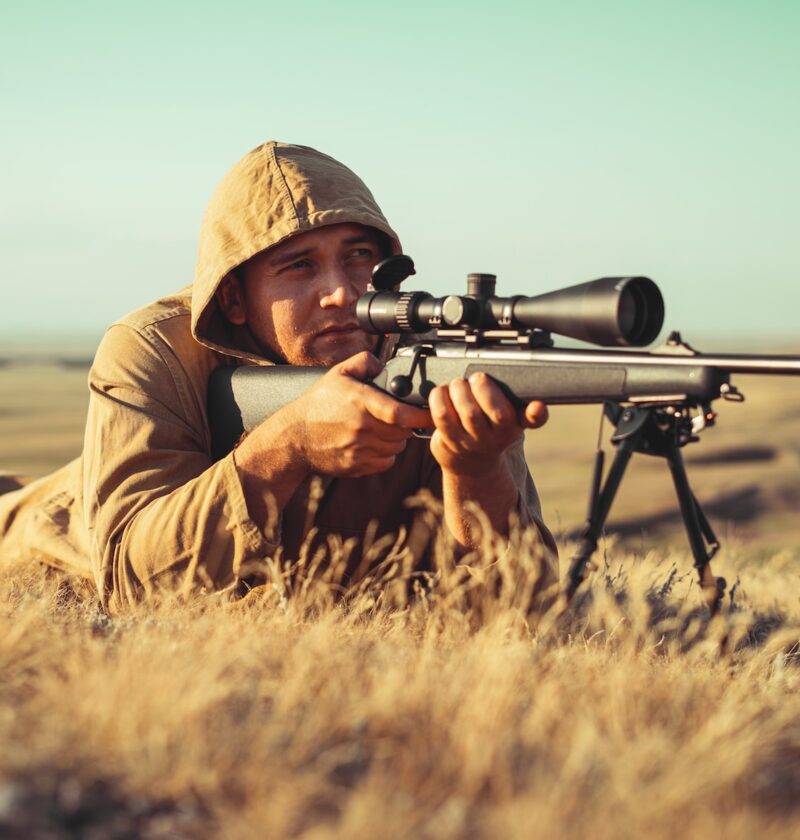Sustainable hunting aims to balance conservation and the pursuit of game. For thousands of years, humans have hunted animals to provide food and resources for their communities; however, over time, we’ve come to recognize that our actions can also damage ecosystems if they are not adequately managed. Sustainable hunting recognizes this dynamic and seeks to ensure that future generations can enjoy nature’s bounty while protecting wildlife and keeping populations healthy.
Be aware of the environment
To carry out sustainable hunting practices, hunters must always remain aware of their local environment and how their activities may impact it. Consider the size and density of specific animal populations so that only enough game is taken from an area to avoid overhunting or wiping out entire species.
Use the right equipment
Additionally, hunters should strive to use as little ammunition and other resources as possible to reduce the damage inflicted on the environment, including using non-lead ammunition, which is less likely to cause environmental contamination should a bullet miss its target and hit the ground instead. Air rifle scopes are also becoming increasingly popular, allowing hunters to take shots from greater distances, reducing the chance of wounding an animal instead of killing it. Learn more about the benefits of using air rifle scopes at Scopes Reviews.
Have good hunter-education practices
In addition to limiting resource use, sustainable hunting also involves good hunter-education practices. It’s important for all hunters, regardless of age or experience, to have a thorough understanding of local wildlife laws and regulations to remain compliant with them at all times. Hunters must also learn how to identify game species correctly to prevent taking protected species by mistake; this knowledge also helps ensure that only the right amount of game is taken from an area.
Practice ethical hunting behaviors
Hunters should practice ethical hunting behaviors to help conserve animal populations, which includes carefully stalking animals and taking shots with minimal disturbance, refraining from shooting when visibility is poor, and using appropriate tackle and weaponry for the hunted game. Likewise, when hunting in groups, hunters should work together to ensure that their actions are coordinated and respectful of the environment.
Participate in conservation efforts
Finally, sustainable hunting also involves following up on any animals taken by reporting harvests and participating in wildlife surveys or other conservation efforts. These efforts help managers keep track of animal populations and adjust regulations to manage them properly. Additionally, it provides valuable data to researchers who often rely on hunter-collected information when studying wild animal species.
Help maintain a balance between conservation and hunting
By understanding the principles behind sustainable hunting, hunters can help maintain a balance between conservation and the pursuit of or the target may escape undamaged, and retrieving any downed game immediately to avoid leaving wounded animals behind. Additionally, hunters should properly dispose of any waste, such as empty shells and carcasses, to prevent pollution and disease transmission.
How to support sustainable hunting in your area
Sustainable hunting requires support from both hunters and non-hunters alike. Non-hunters can show their support by educating themselves on sustainable hunting, supporting conservation efforts, and respecting the rights of hunters to pursue the game responsibly.
Hunters can demonstrate their commitment to sustainable hunting by adhering to state and federal regulations, joining conservation organizations, and using ethical hunting practices. For instance, hunters should follow “leave no trace” principles in the field, avoid accidental damage to vegetation or other wildlife habitats, dispose of trash properly, and avoid campsites too close to water sources, which also includes being mindful when stalking prey to avoid disturbing nearby animals or habitats.
It is also essential for hunters to be aware of their local environment when setting up campsites or engaging in any activity that might impact an animal’s habitat. Before pursuing an animal, hunters should also consider current weather conditions and potential impacts on game migration patterns or reproductive success rates.
Finally, one of the most effective ways for hunters to promote sustainable hunting is by engaging in meaningful conversations with non-hunters about their sport and its importance for conservation efforts. Hunters need to be ambassadors for ethical hunting practices while developing relationships with those with different perspectives. By doing so, they can help create a more inclusive understanding of sustainable hunting among a wider audience.
The bottom line
The importance of sustainable hunting cannot be overstated; not only does it promote conservation, but it also strengthens relationships between people and wildlife. By practicing good stewardship and becoming better educated about local regulations and species, hunters are helping support a healthier environment while still enjoying the outdoors.
Suppose we all work together to maintain responsible habits. In that case, we can ensure that everyone, from novice hunters to seasoned professionals, can continue participating in this time-honored hobby safely and respectfully to all living creatures. Sustainable hunting is essential for preserving wildlife populations and ensuring our traditions survive into the future.







